GST dengan pemulangan RM5k GST, sebanyak RM300 setiap bulan lebih baik jika GST 6%. SST boleh dikenakan pada barang mewah lumayan...atas GST...
如果商品及服务税为6%,则可获得5000令吉的商品及服务税(GST),每月300令吉更好。 SST可以在豪华商品上收取... 在商品及服务税(GST)之上
GST with a RM5k GST return, at RM300 per month is better if GST is 6%. SST may apply on luxury goods ... on top of GST..
For a start those age 20 and below be given RM200 a month, and those age above 60 be given RM400 a month as a basic revenue. Those in-between ages 20 and 60 be considered on RM300 a month. Slowing moving to RM600/month in urban area, RM300/month in rural area for all.
Which will be 6% of RM5000 for a start. MBR Malaysia Basic Revenue in future or bantuan sara hidup now.
GST be maintained to tax more on the big spender, or using value-added tax instead. This will be an effective wealth tax, then direct wealth tax, as direct wealth tax, may cause the wealthy people to move out of the country, as high-income tax deter investment and expatiates.
Basic Revenue will mitigate the GST from the essential spending, the essential basic living expenses.
Tabung Harapan will become a willing wealth tax, where people with extra, who are willing to depart with their extra. Hopefully, the Top 20 will contribute 2% of their wealth annually
We got 16 above US$ billion-dollar club, 14 above US$500 million club, 20 above US$200 million club, according to Forbes magazines 2017.
如果商品及服务税为6%,则可获得5000令吉的商品及服务税(GST),每月300令吉更好。 SST可以在豪华商品上收取... 在商品及服务税(GST)之上
GST with a RM5k GST return, at RM300 per month is better if GST is 6%. SST may apply on luxury goods ... on top of GST..
For a start those age 20 and below be given RM200 a month, and those age above 60 be given RM400 a month as a basic revenue. Those in-between ages 20 and 60 be considered on RM300 a month. Slowing moving to RM600/month in urban area, RM300/month in rural area for all.
Which will be 6% of RM5000 for a start. MBR Malaysia Basic Revenue in future or bantuan sara hidup now.
GST be maintained to tax more on the big spender, or using value-added tax instead. This will be an effective wealth tax, then direct wealth tax, as direct wealth tax, may cause the wealthy people to move out of the country, as high-income tax deter investment and expatiates.
Basic Revenue will mitigate the GST from the essential spending, the essential basic living expenses.
Tabung Harapan will become a willing wealth tax, where people with extra, who are willing to depart with their extra. Hopefully, the Top 20 will contribute 2% of their wealth annually
We got 16 above US$ billion-dollar club, 14 above US$500 million club, 20 above US$200 million club, according to Forbes magazines 2017.
If each of them willing contribute to a wealth tax: US$200 million and above for 1 million, US$500 million and above for 4 million, US$ billion and above 10 million.
160+56+20= 236
A collection of 236 million US$ addition in wealth tax will emerge.
https://www.forbes.com/malaysia-billionaires/list/#tab:overall
similarly for corporate with capital above US$ 1 billion to contribute 10 million US$, US$10 billion to contribute US$100 million.
https://malaysia.yahoo.com/news/ahead-budget-2018-economists-higher-corporate-tax-replace-094000831.html
Malaysia’s elites and corporations pay relatively low taxes.
Debate on taxation should not be confined to GST, but must include calls for reform on the whole tax system.
https://www.cnbc.com/2015/03/10/why-we-need-a-global-wealth-tax-piketty.html
https://en.wikipedia.org/wiki/Wealth_tax
A global wealth tax and not a consumption tax is the way to go when it comes to fixing wealth inequality around the world, said French economist and author Thomas Piketty
Taxation should be on wealth, just like maintenance fee on unit trust, it should be on properties and landowner, shares and equities owner and even saving, besides income and GST.
税收应该是从财富,就像单位信托维护费一样,应该是从财产和土地所有者,股份和股权所有者,甚至储蓄,除了收入和消费税。
https://en.wikipedia.org/wiki/Distribution_of_wealth
Let the top 10% wealthy elites which hold 80-90% of total wealth to contribute the 40% (top 1% contribute 30%, 9% from the rest of top 10% ) or more of basic income, and government, state, municipal, district operation cost.
The rest will be from the elites, meritocrats and commoners and corporations with assets above reasonable wealth level, together with other taxes, the return of national investment fund.
let say those with 1 billion US$ and above contribute 1 million US$ in wealth tax, 2 billion US$ and above contribute 2 million US$ in staggering upward wealth tax.
maybe those above 5 billion US$ need to contribute 10 million US$ and so forth, to fulfill a reasonable budget, and not overburden to medium and common class, and not to encourage overly wealthy.
让拥有财富80-90%的前10%富豪精英贡献40%以上的基本收入,以及政府,州,市,区经营成本。
其余的将来自资产超过合理财富水平的精英,优胜者和平民和企业,加上其他税收,国家投资基金回报。
A basic income for all to cover all basic expenditures, food, shelter, education and basic health and medical insurance policy.
全部基本收入涵盖所有基本支出,食品,住房,教育和基本医疗保险
This will be able to offset consumption tax that hit the bottom 40 per cent, or even the lower middle 40 per cent, citing numbers indicating a huge increase in household spending as prices for foods and services increase.
Malaysian tax structure is basically inequitable...in other words, after taxation, income distribution is worse than before taxation and this inequity or regression has increased overtime, especially since the mid 80s and more recently, with the introduction of GST.
Malaysia has a skewed tax system that provides loopholes for the rich and high-earning corporations to pay very low taxes, while lower income earners pay higher levies percentage wise, now made worse by the GST.
 | #1 | Robert Kuok | $11.4 B | 94 | palm oil, shipping, property |
 | #2 | Quek Leng Chan | $6.8 B | 76 | banking, property |
 | #3 | Ananda Krishnan | $6.5 B | 79 | telecoms, media, oil-services |
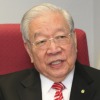 | #4 | Hong Piow Teh | $4.75 B | 87 | banking |
 | #5 | Lee Shin Cheng | $4.7 B | 78 | palm oil, property |
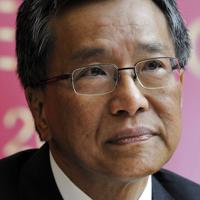 | #6 | Lim Kok Thay | $4.45 B | 66 | casinos |
 | #7 | Yeoh Tiong Lay | $2.1 B | 87 | construction, property, power |
 | #8 | Lau Cho Kun | $2.08 B | 82 | palm oil,property |
 | #9 | Tiong Hiew King | $2 B | 82 | timber, media |
 | #10 | Syed Mokhtar AlBukhary | $1.8 B | 65 | engineering, energy, construction |
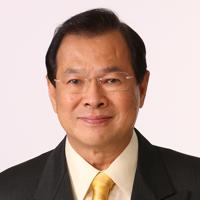 | #11 | Chen Lip Keong | $1.6 B | 70 | casinos, property |
 | #12 | Lee Oi Hian & Lee Hau Hian | $1.2 B | - | palm oil/chemicals/property |
 | #13 | Koon Poh Ming & Poh Keong | $1.05 B | - | aluminum |
 | #14 | Surin Upatkoon | $1.02 B | 68 | telecom, lotteries, insurance |
 | #15 | Kuan Kam Hon | $1.01 B | 69 | synthetic gloves |
 | #16 | Desmond Lim Siew Choon | $1 B | 56 | property |
 | #17 | Jeffrey Cheah | $970 M | 72 | property |
 | #18 | G. Gnanalingam | $940 M | 73 | ports |
 | #19 | Danny Tan Chee Sing | $840 M | 62 | property |
 | #20 | Vincent Tan | $820 M | 65 | retail, restaurants, property |
 | #21 | Yaw Teck Seng & Yaw Chee Ming | $815 M | - | forestry, palm oil, property |
 | #22 | Goh Peng Ooi | $805 M | 62 | software |
 | #23 | Lim Kang Hoo | $705 M | 63 | property |
 | #24 | David Kong | $700 M | 62 | funeral services |
 | #25 | Lim Wee Chai | $640 M | 59 | rubber gloves |
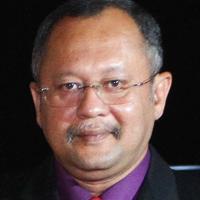 | #26 | Ibrahim Syed Azman | $600 M | 57 | transport/motor vehicles |
 | #27 | Ahmayuddin bin Ahmad | $570 M | 61 | ports |
 | #28 | Tan Heng Chew, Eng Soon & Eng Hwa | $565 M | - | motor vehicles |
 | #29 | Ninian Mogan Lourdenadin | $555 M | 63 | property, retail, financial services |
 | #30 | Lim Kuang Sia | $505 M | 65 | rubber gloves |
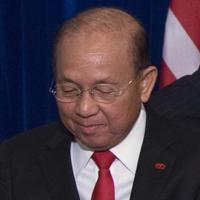 | #31 | Azman Hashim | $490 M | 78 | banking |
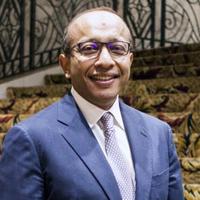 | #32 | Shahril & Shahriman Shamsuddin | $475 M | - | oil & gas |
 | #33 | Ngau Boon Keat | $460 M | 69 | oil & gas |
 | #34 | Mokhzani Mahathir | $420 M | 56 | oil & gas |
 | #35 | Patrick Grove | $400 M | 42 | e-commerce/media |
 | #36 | Lim Teck Meng | $390 M | 80 | manufacturing, property |
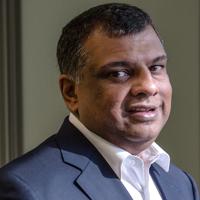 | #37 | Tony Fernandes | $345 M | 53 | airlines |
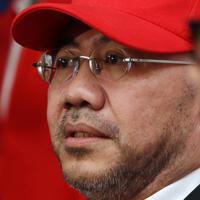 | #38 | Kamarudin Meranun | $340 M | 56 | airlines |
 | #39 | Wong Thean Soon | $330 M | 46 | electronic services |
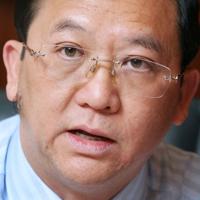 | #40 | Leong Hoy Kum | $320 M | 60 | property |
 | #41 | Kong Chong Soon | $315 M | 75 | property |
 | #42 | Lim Han Weng | $290 M | 65 | oil & gas |
 | #43 | Chong Chook Yew | $285 M | 94 | property |
 | #44 | Wong Teek Son | $255 M | 56 | glove manufacturing |
 | #45 | Kua Sian Kooi | $250 M | 65 | insurance/property |
 | #46 | Tan Chin Nam | $245 M | 91 | property |
 | #47 | Ong Leong Huat | $240 M | 73 | property, construction, financial services |
 | #48 | Ling Chiong Ho | $235 M | 66 | palm oil, shipbuilding |
 | #49 | Teong Teck Lean | $230 M | 57 | delivery services |
 | #50 | Loh Kian Chong | $210 M | 41 | motor vehicles, palm oil, property |
similarly for corporate with capital above US$ 1 billion to contribute 10 million US$, US$10 billion to contribute US$100 million.
https://malaysia.yahoo.com/news/ahead-budget-2018-economists-higher-corporate-tax-replace-094000831.html
Malaysia’s elites and corporations pay relatively low taxes.
Debate on taxation should not be confined to GST, but must include calls for reform on the whole tax system.
https://www.cnbc.com/2015/03/10/why-we-need-a-global-wealth-tax-piketty.html
https://en.wikipedia.org/wiki/Wealth_tax
A global wealth tax and not a consumption tax is the way to go when it comes to fixing wealth inequality around the world, said French economist and author Thomas Piketty
Taxation should be on wealth, just like maintenance fee on unit trust, it should be on properties and landowner, shares and equities owner and even saving, besides income and GST.
税收应该是从财富,就像单位信托维护费一样,应该是从财产和土地所有者,股份和股权所有者,甚至储蓄,除了收入和消费税。
https://en.wikipedia.org/wiki/Distribution_of_wealth
- half of the world's wealth belongs to the top 1%,
- top 10% of adults hold 85%, while the bottom 90% hold the remaining 15% of the world's total wealth,
- top 30% of adults hold 97% of the total wealth.
Let the top 10% wealthy elites which hold 80-90% of total wealth to contribute the 40% (top 1% contribute 30%, 9% from the rest of top 10% ) or more of basic income, and government, state, municipal, district operation cost.
The rest will be from the elites, meritocrats and commoners and corporations with assets above reasonable wealth level, together with other taxes, the return of national investment fund.
let say those with 1 billion US$ and above contribute 1 million US$ in wealth tax, 2 billion US$ and above contribute 2 million US$ in staggering upward wealth tax.
maybe those above 5 billion US$ need to contribute 10 million US$ and so forth, to fulfill a reasonable budget, and not overburden to medium and common class, and not to encourage overly wealthy.
让拥有财富80-90%的前10%富豪精英贡献40%以上的基本收入,以及政府,州,市,区经营成本。
其余的将来自资产超过合理财富水平的精英,优胜者和平民和企业,加上其他税收,国家投资基金回报。
A basic income for all to cover all basic expenditures, food, shelter, education and basic health and medical insurance policy.
全部基本收入涵盖所有基本支出,食品,住房,教育和基本医疗保险
This will be able to offset consumption tax that hit the bottom 40 per cent, or even the lower middle 40 per cent, citing numbers indicating a huge increase in household spending as prices for foods and services increase.
Malaysian tax structure is basically inequitable...in other words, after taxation, income distribution is worse than before taxation and this inequity or regression has increased overtime, especially since the mid 80s and more recently, with the introduction of GST.
Malaysia has a skewed tax system that provides loopholes for the rich and high-earning corporations to pay very low taxes, while lower income earners pay higher levies percentage wise, now made worse by the GST.

No comments:
Post a Comment